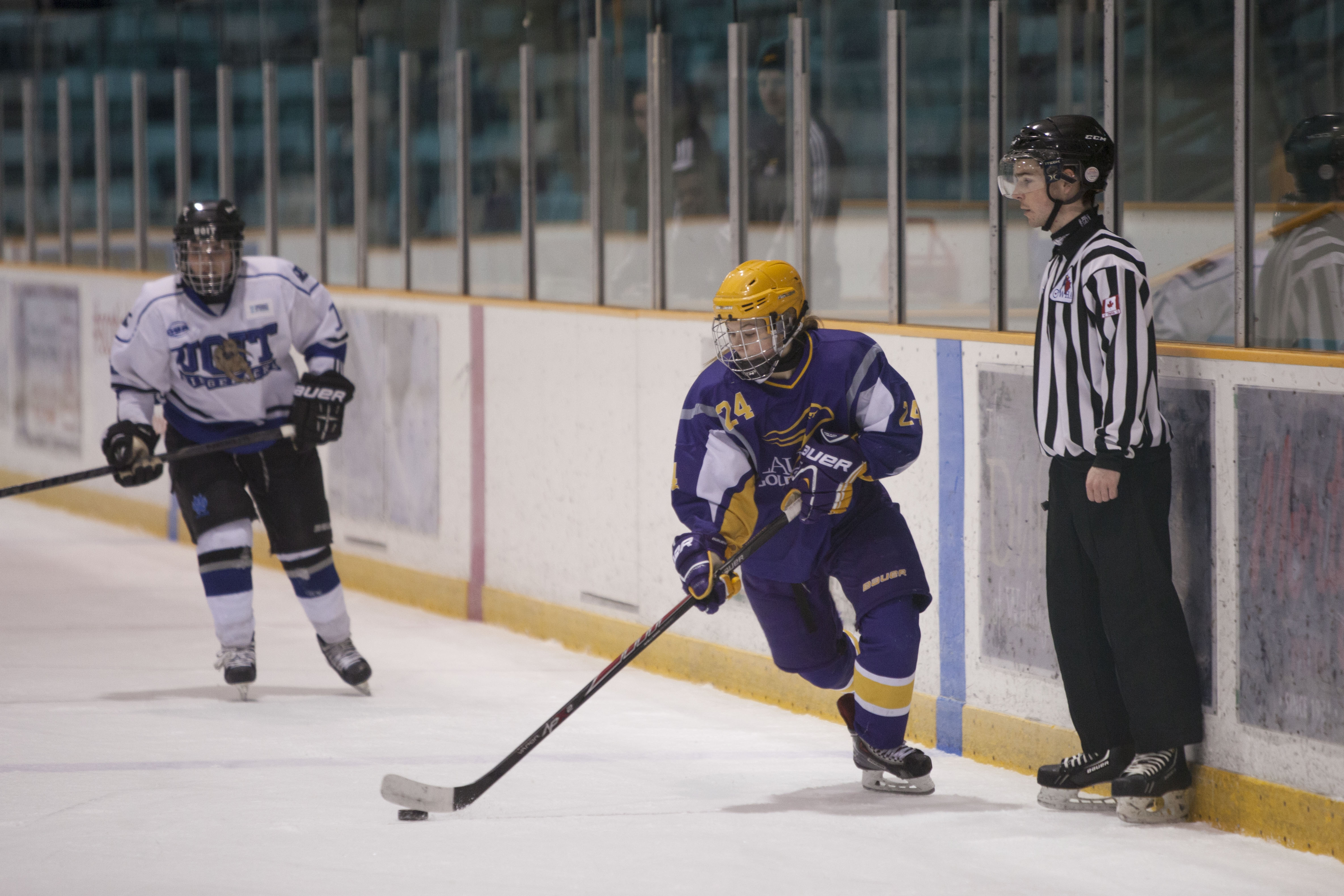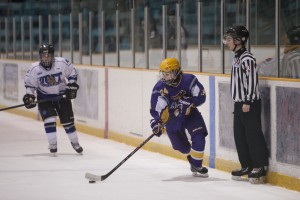Officiating at nationals an ongoing issue


Time and time again, there seems to be the same issue when teams go to Canadian Interuniversity Sport (CIS) national championships.
A consistent topic of conversation in both press boxes and dressing rooms alike, the officiating on the national championship platform is almost nauseating to watch — and it shows no signs of getting better.
When the women’s hockey championship was in Waterloo in 2011, an obvious goal was called back for the Manitoba Bisons, which gave the St. Francis Xavier (St. F.X.) X-Women a 4-3 win and vaulted them into the final and, in turn, caused the Wilfrid Laurier Golden Hawks to play for the bronze medal instead of gold.
This year, at the 2014 women’s hockey championship, things didn’t seem to get any better.
At every game there were questionable calls that had the potential to alter not only the tempo of the games for spectators, but the outcomes for the teams.
Now before I get too far and people start criticizing this as just a plea for biased calls, it really isn’t. I’m a firm believer that officiating shouldn’t be the blame for a loss and the team is responsible for adapting to the environment they’re given.
But when the officiating becomes consistently troubling throughout nine games of the tournament — including the winner-take-all gold medal game — there’s an issue.
In the opening period of the McGill versus Laurier game, eight penalties were called out of a total 13, including a cross check on Laura Brooker when she barely touched the player.
In the Montréal Carabins versus St. Thomas Tommies game on Saturday night, the refs were booed as they came onto the ice to start the third period after giving St. Thomas a four-minute minor at the 20-minute mark of the second.
They called 12 penalties throughout the entire game — four on Montréal and eight on St. Thomas. Montréal won 4-0, albeit they were the more talented team.
Even when the referee was replaced in the third period of the Laurier versus Saskatchewan game, after being caught in the way of Devon Skeats, the new official did no better — she continued to call some penalties on both sides of the puck that gave both Laurier and Saskatchewan a little extra help.
And in the final of the CIS championship, a penalty was called on Montréal’s Sophie Brault after the eventual MVP of the tournament, McGill’s Gabrielle Davidson, was outmuscled off the puck and was called for holding.
The penalty, called with 20 seconds to go in the first overtime, led to a powerplay for McGill at the beginning of the second overtime and a quick goal that ended up being the championship winner.
There were also 14 penalties called in that entire game — six of them coming in the second period.
I’m not saying McGill didn’t deserve to win the national championship.
They gave Montréal a run in the RSEQ conference final to make it come down to the deciding game three. The all-Montréal finish was going to be intense whichever way you look at it.
But by adding the extra catalyst of the refereeing throughout the tournament, there is evidence that the championship could have ended up with a different result.
Because of the difference in the way that the four conferences across Canada play and have situated themselves in their style, when they all meet up at a national championship, the officiating seems to plummet. It’s worse than it is in the individual conferences, although that’s not saying much.
The fact that these teams work throughout the year to get to nationals and be the best team in the country should merit another look at the officiating that seems to daunt this championship every year.
It’s a shame that the referees are distracting the purpose of this tournament, which is meant for women’s hockey players.


